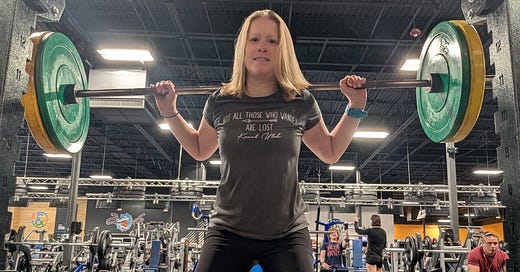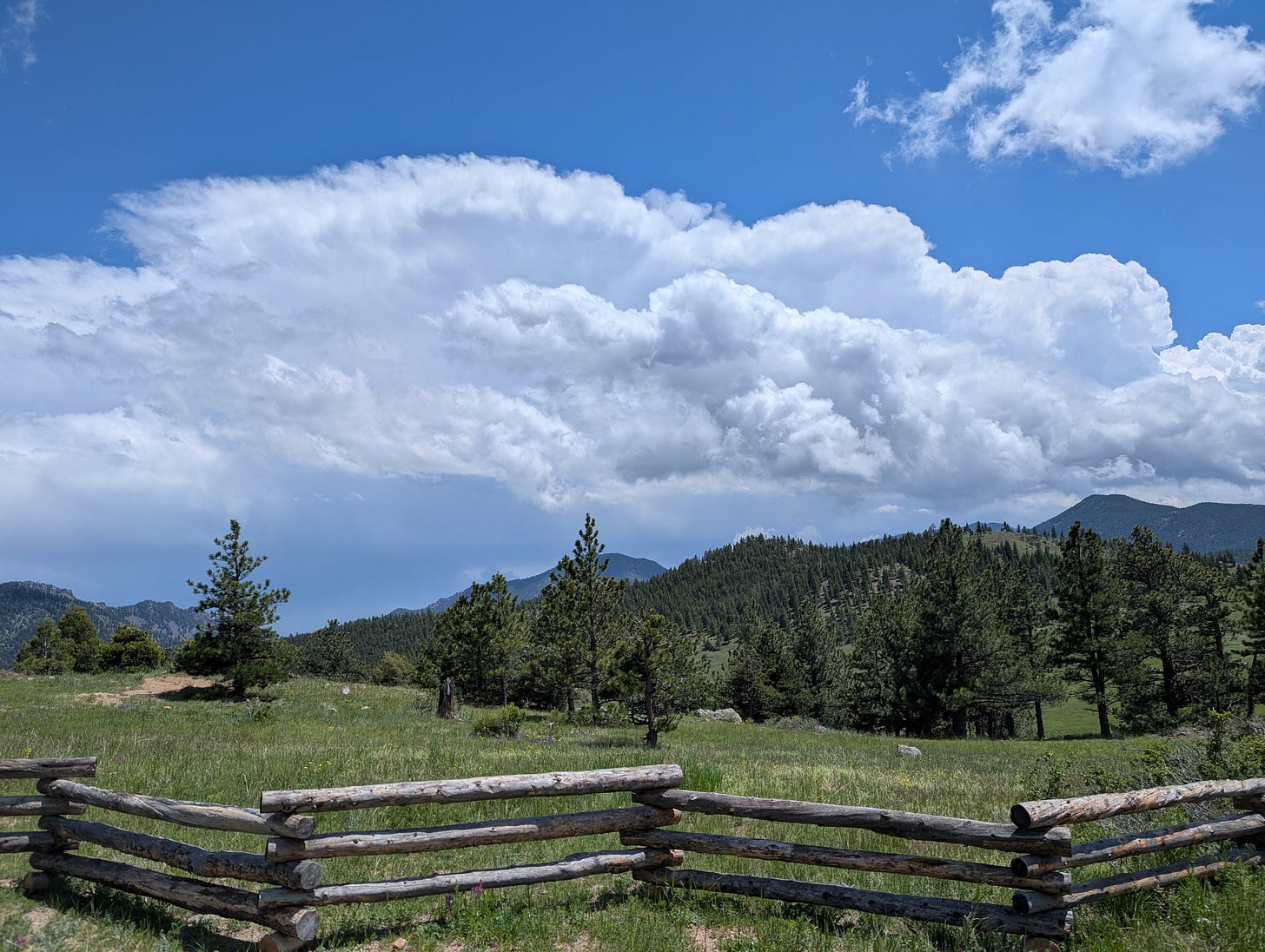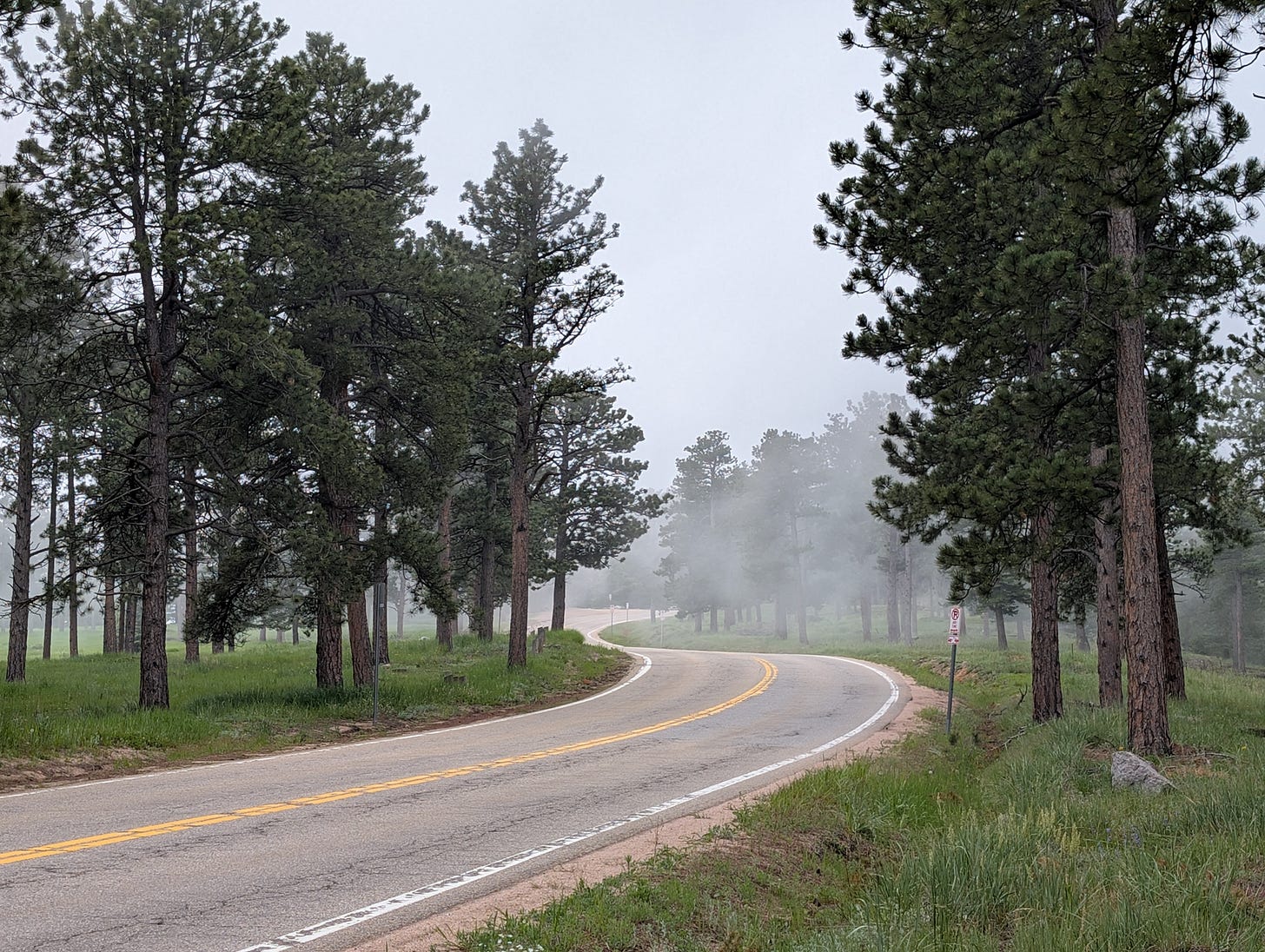I have been feeling exceptionally weak this week. I realize this is a ridiculous statement, but there’s no other way to describe my current state of frustrated diminishment. Late spring blossomed, and pollen flu cut me down like rotten timber. I crumpled in a burst of splinters.
Pollen flu is like any pathogen. My faulty immune system identifies a microscopic threat and floods my system with histamine, triggering inflammation. Sneezing and watery eyes are only the first stage. If the pollen keeps coming, the inflammation keeps building, and soon I’m left in a state that feels like the real flu — chest congestion, sinus headaches, wheezing, fatigue, muscle aches, and increasing shortness of breath. And the pollen just keeps coming.
Yes, I do take all of the medications. Claritin, Benadryl, Flonase, Albueterol, Symbicort … it’s all useless bullshit, all allergy medicine is, grumble grumble grumble, but don’t you dare take it away from me! (Skulks into a dark corner next to a HEPA filter, clutching a pharmacy’s worth of false hope.)
The worst thing about battling an incurable flu in June is the loneliness. The sun is shining. The flowers are blooming. The grass is lush and abundant (“In the name of Ullr, I rebuke you!”). Everyone else is happy. My friends are coming into their summer strength, building and striving, excited about the possibilities. My husband is inviting me on yet another intense 14-hour escapade in the mountains.
“No, sweetie,” I wheeze as I take a break while walking up the stairs. “If I went with you, you’ll have to carry me out of the woods. No, I mean it, this isn’t because I’m going to complain incessantly, which I will, but after the complaining takes the rest of my wind, I will pass out, and you will have to carry me out of the woods.”
Have you ever fallen from a ledge and landed on your back? I did this once as a fifth-grader, five feet down from the top of the jungle gym. I lay paralyzed on the pea gravel, eyes wide as a bee buzzed near my face, crushed by an invisible force and certain I was about to die. The recess lady crossed into my narrowing field of vision, grabbed my arms, and yanked me through my silent panic into a wobbling stand.
“Got the wind knocked out of you?” she yelled. I could only muster a high-pitched wheeze as I smacked my lips like a caught fish in a desperate attempt to inhale.
“You’ll be okay; be glad it wasn’t your head!” she continued shouting, clearly irritated with my obvious shenanigans that put me at the mercy of gravity. I don’t remember why I fell, but I’m pretty sure it wasn’t intentional. I hoped she’d take me to the principal’s office to call my mom, who would take me home and put me in bed with an enormous bowl of ice cream. Instead, the recess lady turned and left. Just left me there, wobbling precariously, holding my neck with both hands and gasping painfully as trickles of air pushed through the invisible crushing force.
This is where I learned about the terror of being unable to breathe. It’s also where I learned that unless you are visibly submerged in water, nobody cares.
Even my husband, who sees me struggling every day, thinks I can’t drown in the mountains. And he’s probably right. But when it feels like drowning, nothing else matters.
I think one way I can feel less weak is to build muscle strength. I don’t need cardiovascular fitness to lift weights. Sure, lifting to muscle failure spikes my heart rate into the red zone. But these are brief, anerobic efforts that I complete in the relatively benign environment of my stale, sweat-soaked, but otherwise climate-controlled gym. I gasp for a few seconds while I recover, and then I’m ready to go again.
Like most endurance junkies, my relationship with strength training can be described as reluctant at best. Muscle fatigue is not conducive to long runs. DOMS can mess up a week of training. But then I hit middle age and accumulated enough injuries to recognize the necessity. With any consistency (which is rare, I admit), I can make big gains. These gains are emotionally satisfying. When the outdoors becomes a more sinister, lung-crushing place, I think, “I could be happy as a weight lifter.”
On Thursday, I set out to complete my first set of deadlifts and squats in nearly three months. I backed off after the White Mountains 100 because of a shin injury, and stayed off because, well, that’s how habits work. So, of course, I started where I left off, at 130 and 110 pounds respectively. My sister can hoist twice that much, so I know I am far below where I could be from a genetic perspective.
The workout was pleasantly exhausting rather than soul-crushing, like my attempts at June running can be. But as I hobbled out of the gym and into another late-spring downpour, I took a big lungful of suddenly clean air and sighed. This would be good weather for running had I not just flogged myself into IOMS (immediate onset muscle soreness). Downpours are short-lived, though. The miasma of pollen would return within minutes.
As I drove home, I scanned the sky for rainbows (please, let me see something beautiful in nature) and thought about my motivations for building muscle strength. In these visualization scenarios, my imagination always runs away. I looked at the drivers around me and wondered if anyone else is preparing for the collapse. Then I laughed at myself for what that even means. Even if I manage to become swole enough to fight off attackers as I walk long distances to water sources and persistence-hunt mule deer, my survival adaptations without the modern medicine that I so recently decried are incredibly subpar. The first thing that will happen to me in climate-change collapse is dying of an asthma attack brought on by far-ranging wildfires. And this would be my preference. Who wants to live in a world where elderly women need to chase deer to exhaustion and regularly fight off attackers? Not me. If the collapse comes, a fatal health condition that takes me out early and quickly will be a blessing.
For too long, resilience to me has meant running long distances over rugged mountains, crossing miles of frozen wilderness, and sleeping outside at 40 below. It meant doing more with less, getting comfortable with being uncomfortable, “Homering Up” in my grandmother’s stern admonishment, and embracing good ol’ rugged American individualism. What I’ve learned in my striving is that these actions don’t build resilience. What they build is isolation: Being alone and uncomfortable at the edge of uncrossable divides.
What resilience is, I’ve learned, isn’t something we build within ourselves; it’s something we build around us. Resilience is our environment and our communities. Resilience isn’t having a sister who can deadlift hundreds of pounds. It’s having a sister who will lift me when I am weak, who will be there to carry me when I can’t carry myself. It’s relationships that encourage us to be the best versions of flawed human selves. It’s friendships that aren’t transactional. It’s neighbors who trust that I’ll be there to do a grocery run when they’re sick, knowing they’d do the same for me. Resilience is understanding and loving the people in my life and the land on which I live. It’s the conviction that I’d do anything to protect them. Resilience is letting go of the things I don’t need, which is most things. Resilience is cultivating what I love, knowing this love is what will carry me through the inevitability of loss. Because loss will prevail, no matter how many isolating walls of strength I build around myself. When individual foundations collapse, communities remain.
And I know, by how despairing I feel when allergies leave me too weak to run, that I still have much to build toward the resilience I desire. Still, being cut down from time to time is a worthy lesson. I intend to throw around some weights and think about it some more.
Do you enjoy my essays, but don’t want another email cluttering your inbox? Consider a one-time tip that will make my whole day. Either way, thank you for reading!







Nice ending! I agree. Resilience is a lot more than just what you can do on your own. Oh, and when I was in the fifth grade or so I fell out of a tree onto my back. My friend got my mom, who got me back to the house, where I lay on the couch gasping. It must have been hours, but was probably only minutes. I still remember that. What a horrible feeling.
I love your wise and very thoughtful definition of resilience, especially meaningful during these times we're living through.